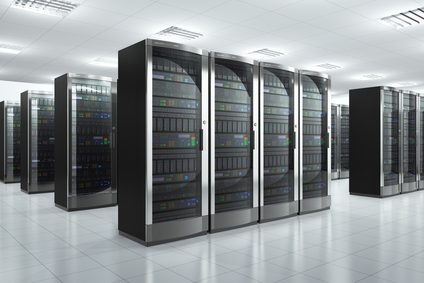Knowledge about data center tiers is crucial especially if your organization has or is planning on adopting modern data center technology and infrastructures such as virtualization or hyperconvergence. In this post, we will discuss what a data center tier is, how many types it has, why it is important and what it indicates about your data center.
Data Center Tier:
Data center tiers are the method by which a data center is ranked by using potential uptime or infrastructure performance as the measuring or ranking unit. This methodology is a standard in the IT industry used for determining whether the needs of your company can be handled by a certain data center. There are four data center tiers i.e. 1, 2, 3 and 4.
Data Center Tier Types:
Listed below are brief descriptions of the four data center tier types along with their advantages and disadvantages:

- Tier 1
Tier 1 data center is an economical facility but also one of the most unreliable one as well. It has a single distribution path and capacity components that are non-redundant in nature. This makes tier 1 data centers susceptible to disastrous situations such as single point of failure and due to non-availability of any backup system; disaster management is a challenge.
Tier 1 is suitable for small companies that either have a small internet presence or do not offer any eCommerce services.
Advantages
- Tier 1 data centers are cheap and suitable for small businesses.
Disadvantages
- High-risk involved in such data centers such as disruption due to unforeseen situations and downtime of equipment in case of planned outages such as repair work or maintenance issues.
- Tier 2
In Tier 2, the data centers need to have the same functionalities and infrastructure as tier 1 with the exception of capacity component that need to be fully redundant. These data centers are a bit more reliable as compared to tier 1 but they still have many issues regarding uptime.
Tier 2 is perfect for companies that do not offer services round-the-clock and can withstand downtime occasionally.
Advantages
- This type is an economical solution as compared to tier 3 and 4 data centers. You can have maintenance and repair related service outages without compromising the uptime of the equipment.
Disadvantages
- Tier 2 has an uptime performance that is significantly less than tier 3 and it cannot handle unplanned outages with causing lengthy downtime.

- Tier 3
The most cost-effective data center type with the lowest downtime is Tier 3. The maximum downtime your equipment can face with this data center is 2 hours per year. These data centers need to have properties of tier 1 and tier 2 along with multiple uplinks and dual-power sources for the equipment.
This type of data centers are perfect for businesses with an international presence, organizations with round-the-clock operational hours, online stores, database-driven websites, call centers and voice over IP service providers.
Advantages
- Tier 3 data centers are cheaper than tier 4 and can effectively cater the requirements of majority of the businesses. The dual power requirement ensures that maintenance can be done without affecting the equipment.
Disadvantages
- This type of facility is not fully fault-resistant
- Tier 4
Tier 4 data centers have all the functionalities of tier 1, 2 and 3 data centers. These facilities have fully fault-resistant equipment and systems. The availability is above 99.99% thanks to the dually powered infrastructure.
This tier type is perfect for multinational corporations and organizations with business spread around the world.
Advantages
- All types of outages are harmless for tier 4 data centers and maintenance related activities can be carried out without any issue.
Disadvantages
- Tier 4 data centers are quite expensive.
So, these were the four data center tiers. If you are thinking of upgrading your data center or creating one then go for virtual SAN in order to cater your business requirements with an economical, flexible and extremely reliable solution.

